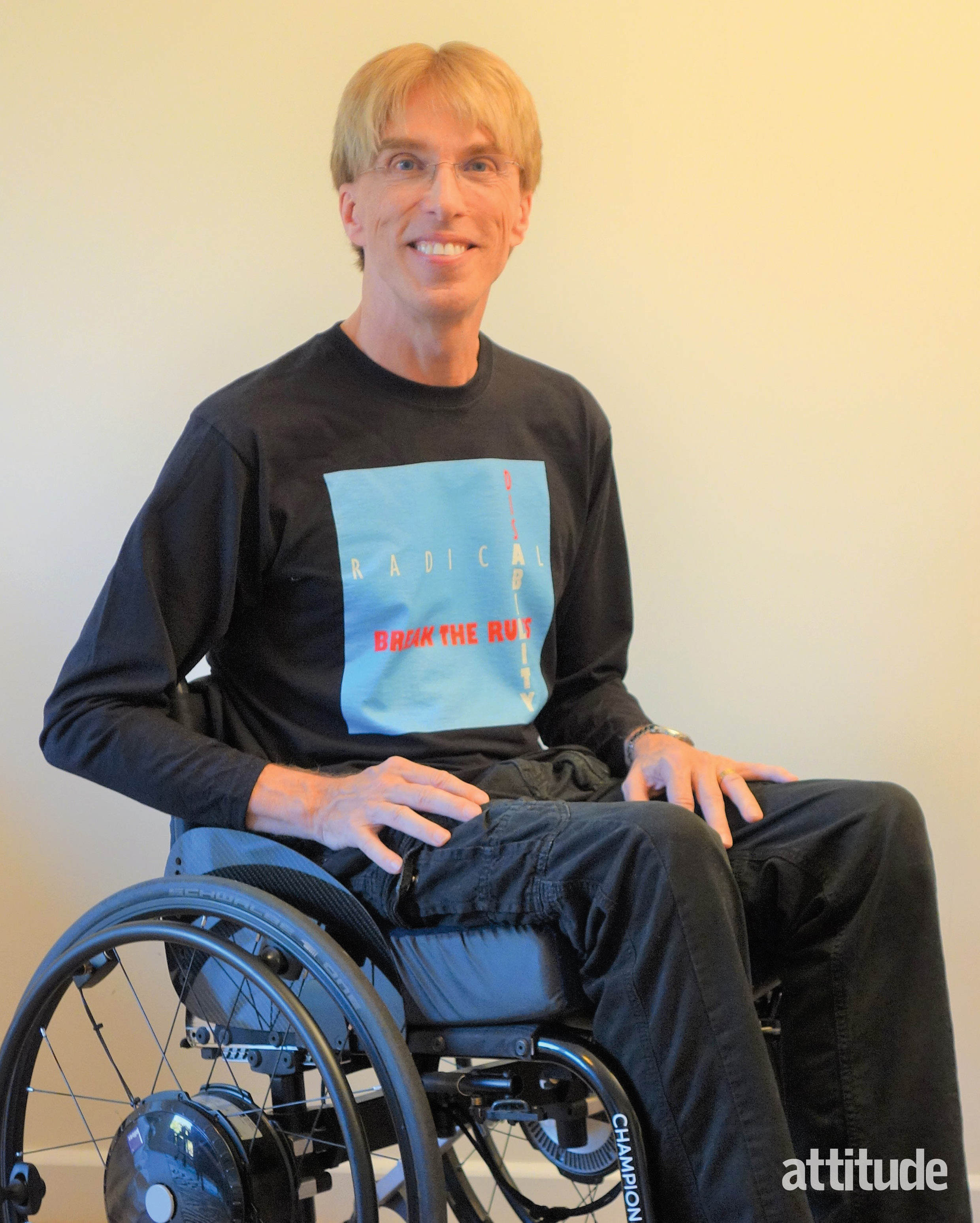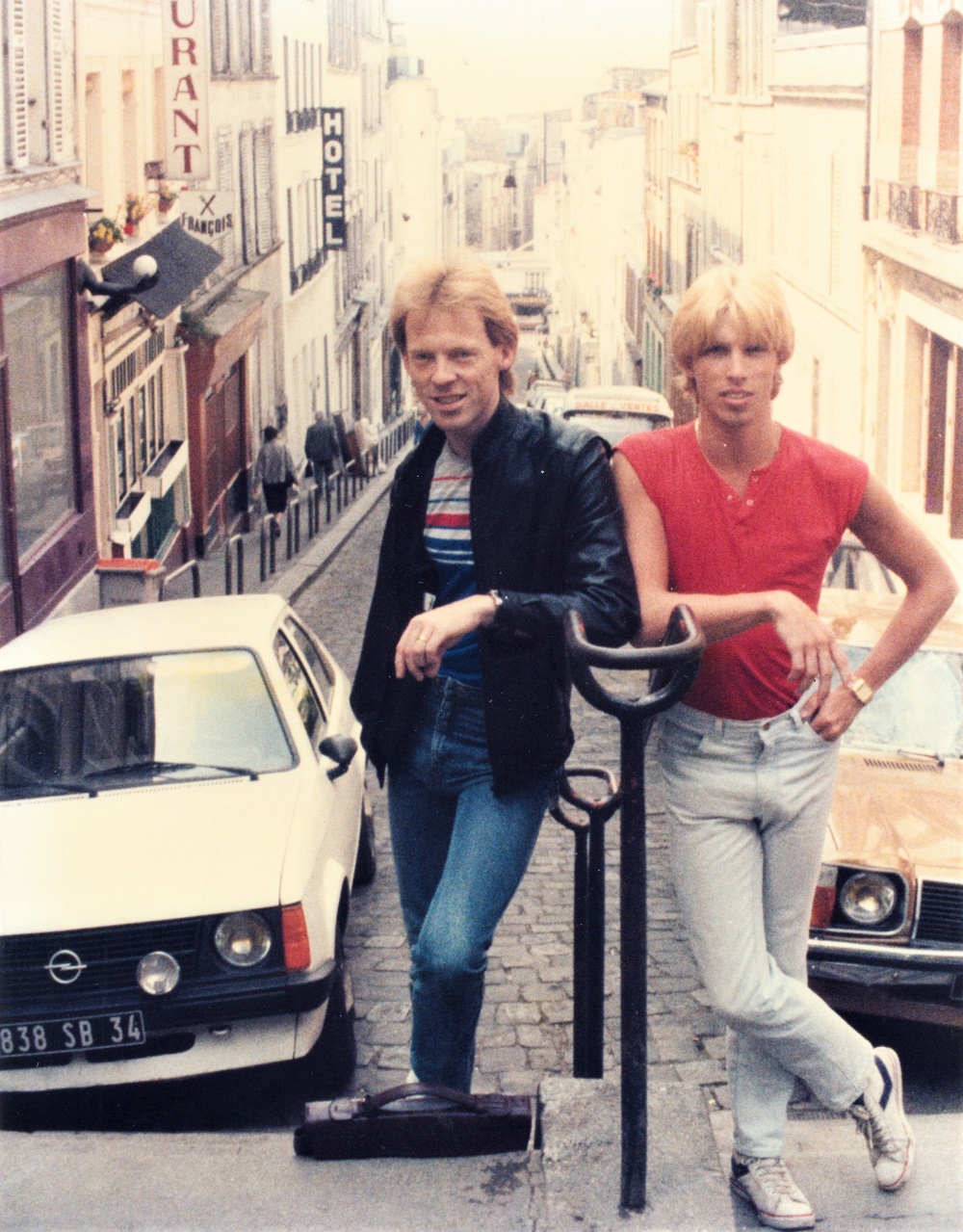The world’s first full ‘cyborg’ on how his sexuality helped his battle with motor neurone disease
Find out how the gay scientist Peter Scott-Morgan is rewriting his future with the help of cutting-edge technology in the Attitude July issue

Words: Thomas Stichbury; pictures: Provided
When Peter Scott-Morgan was diagnosed with motor neurone disease, he decided to begin the biggest experiment of his life: to become the world’s first full ‘cyborg’ – the world’s first full gay ‘cyborg’, at that.
The English-American scientist received his MND diagnosis in 2017 – the condition would eventually leave him ‘locked in’, unable to walk, talk, swallow and breathe without machine assistance, only able to control the movement of his eyes – and was told by doctors that he had two years to live. But Peter had other ideas.

An expert in robotics and artificial intelligence, he set out to rewrite his future and, indeed, the fates of others struggling with extreme disability, undergoing pioneering surgeries to merge his humanity with cutting-edge technology and AI (including his very own avatar, pictured above, created by the same team at Pinewood Studios who worked on Star Wars and Game of Thrones.)
In an interview in the Attitude July issue, conducted over email, typed with his eyes using a system devised by Intel, the 63-year-old reflects on his extraordinary journey and the obstacles he has overcome – “from the more conservative factions of the medical establishment. Or the government. Or, most bizarrely, institutions focused on MND” – and believes his sexuality gave him extra firepower in his fight for survival.
“Without that exposure, without my brain learning how to instinctively rebel against bullying, however authoritative and whatever the apparent cost, without that vaccination against blind acceptance of the status quo, I would never have even questioned the medical establishment’s expectation that having been diagnosed with MND I should dutifully follow their judgment that I resign myself to an inevitably cruel end, get my affairs in order, and statistically curl up and die on cue,” he explains.
“Put starkly – if I weren’t gay, I’d very likely be dead.”
Peter and husband Francis before his MND diagnosis
By Peter’s side the whole time has been his devoted husband, Francis; on 21 December 2005, they were granted the first ceremony on the day civil partnerships became legal in the UK. The couple live together in Torquay, England.
“A few days ago, Francis and I celebrated 42 years of being a couple in love. That’s all our adult lives. He’s the reason I’m doing this. Of course, I have no intention of leaving him alone now, after all we’ve been through. And the fact that we’re still together, still fighting back-to-back whatever Fate throws at us, the fact that every single day he proves that he loves me far more than I deserve, how could anything give me greater strength than that?” he asks, rhetorically.
“Francis is, has always been, will forever be, the source of my power. As I told him in Trafalgar Square in the final seconds of 1979: ‘I am nothing alone. But together we are invincible!’”
 Peter and Francis in the early 80s
Peter and Francis in the early 80s
Peter – whose book Peter 2.0, published by Penguin Random House, is out now – adds that he wants to own his ‘cyborg’ status as wholeheartedly as he embraced being gay.
“I very quickly realised that, similar to being gay, I had a choice to make. I decided to be out and proud about my transitioning status. And also be brazen about the fact I was different. Still a Real Man (I’d been arguing that since my early teens), indeed, still a Real Human. Just different,” he says.
“So, I commandeered the word ‘cyborg’. It’s simply a fancy word for ‘part human, part machine’. But of course, it’s a bit provocative. The word generally has a negative connotation. Cybermen. Darth Vader. Terminator. But like all bigotry, the negative reactions are the result of fear and ignorance. After all, how many cyborgs have you actually met, let alone got to know?”
“In short, as a transitioning cyborg, please don’t find me creepy. And certainly don’t fear me. Or dislike what I am. Or pity me. My overall quality of life is exceptional. I have love. I have fun. I have hope. I have dreams. I have purpose. Oh, and did I mention, I’m still alive. I mean really alive. Not just one of the living dead. Not just surviving. Thriving.”
Read the full interview in the Attitude July issue, out now.
Subscribe in print and get your first three issues for just £1 each, or digitally for just over £1.50 per issue.

